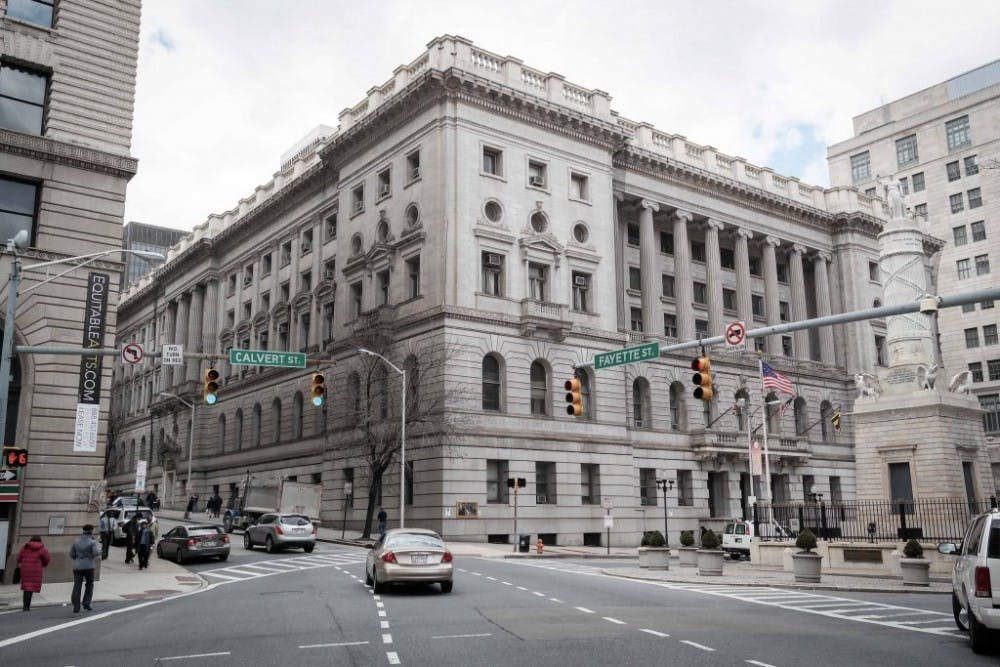The fourth trial of police officers implicated in the death of Freddie Gray is set to begin tomorrow, coming after two acquittals and one mistrial that have rocked Baltimore.
Baltimore Police Department (BPD) Officers Edward Nero and Caesar Goodson, Jr. were cleared of all charges in May and June, respectively. Both opted for bench rather than jury trials, meaning the presiding judge Barry Williams determined the verdicts.
Goodson, who faced more serious charges than any of his fellow officers, drove the van that transported Gray, a 25 year old black man, from the scene of his arrest to the Western District police station and in which, according to the state medical examiner’s office, Gray sustained a fatal spinal cord injury. Gray’s death one week after his arrest sparked both peaceful and violent protests, garnering national attention.
Nero was charged with second-degree assault, misconduct in office and reckless endangerment. Goodson was charged with second-degree, “depraved heart” murder, manslaughter, misconduct in office and reckless endangerment.
In December, Officer William Porter was the first officer in the Gray case to be tried. However, due to a hung jury, a mistrial was declared. Porter will be retried in September on the charges of involuntary manslaughter, second-degree assault, misconduct in office and reckless endangerment.
The trial of Lieutenant Brian Rice, the highest ranking officer implicated in Gray’s death, begins tomorrow. He has also opted for a bench trial. Rice is charged with involuntary manslaughter, second-degree assault, misconduct in office and reckless endangerment.
The remaining two BPD officers implicated in Gray’s death, Officer Garrett Miller and Sergeant Alicia White, will be tried in July and October, respectively. Miller is charged with second-degree assault, misconduct in office and reckless endangerment.
White faces involuntary manslaughter, second-degree assault, misconduct in office and reckless endangerment charges.
Ahead of Rice’s trial, The News-Letter sat down with Hopkins adjunct assistant professor and law expert Lawrence Raifman to discuss the case’s progression thus far and what to expect for the remaining trials.
News-Letter: Officers Edward Nero and Caesar Goodson, Jr. both opted out of jury trials and were acquitted. What effect do you think their choice had on the outcome of their trials, especially considering that Officer William Porter's trial ended in a hung jury?
Lawrence Raifman: The choice of a judge trial proved to be beneficial for the defendants in the latter trials ending in acquittals compared to the first trial, which had been a jury trial that ended in a hung jury. By selecting a judge trial, the defendants endorsed Judge Williams’ strengths, that is, his ability to apply the law to the facts of their case and come to a decision, independent of outside influences, and/or racial or political pressures.
N-L: There was significant debate in the pretrial hearings over whether the officers would be able to get fair trials in Baltimore. Defense attorneys argued that the jury pool would be biased. Do you think that notion contributed to Nero and Goodson's decisions to opt out of jury trials?
LR: Yes. The defendants agreed with their attorneys’ advise.The attorneys had argued that the trial should have been moved out of Baltimore. The court held otherwise. Whether the jury pool was biased remains conjecture in their cases because they did opt out of jury trials.
N-L: How likely do you think it is that the remaining 4 officers to be tried will opt out of jury trials considering that their fellow officers were acquitted by the judge?
LR: The remaining trial defendants can be expected to seek a judge, rather than jury, trial.
N-L: The same judge is presiding over all 6 trials. Do you think that affects the outcome?
LR: Judge Williams has an excellent reputation among attorneys in Baltimore; he is known as a pragmatist, he has excellent legal analysis skills, he showed great skill in questioning the prosecutors in the last trial, and he is experienced. If Judge Williams does preside over the next trials, his presence on the bench will impact the prosecutors’ case preparation. It is expected that the state will define their goals, and will smartly articulate their case strategy.
N-L: Do you think States' Attorney Marilyn Mosby “overcharged” any of the officers due to public pressure?
LR: In the recently concluded cases, one can say she had “overcharged,” given the verdicts.
N-L: The trials were supposed to have ended in March, less than a year after Freddie Gray's death. Instead, Porter's ended in a mistrial and the remaining five were hung up in appeals until May, more than a year after Gray's death. What effect, if any, do you think this time gap of more than a year versus a few months has had and will have on the trials?
LR: Unfortunately nowadays, criminal trials are delayed, often through pretrial motions and other attorney maneuvers. Therefore, it is not surprising that it has been more than one year since the charges in this case. It might be the delay has allowed the community and the Baltimore Police Department in the interim to make progress in their relations, calm tempers that were running high after Freddie Gray’s death.





